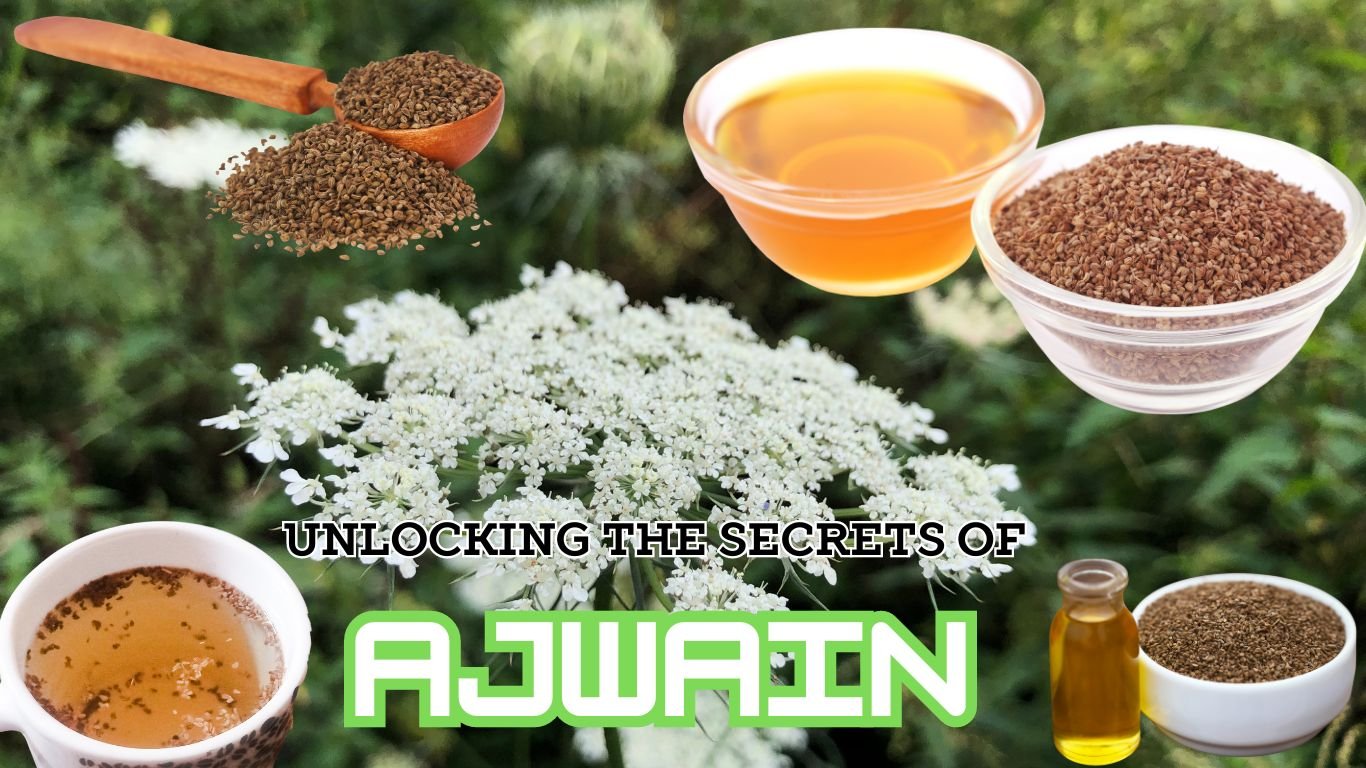HEALTH
Unlocking The Secrets Of Ajwain Culinary And Medicinal Uses
Ajwain, scientifically known as Trachyspermum ammi, is a plant that produces small, seed-like fruits. These tiny seeds are commonly referred to as carom seeds or simply ajwain.

Unlocking The Secrets Of Ajwain, Ajwain, scientifically known as Trachyspermum ammi, is a plant that produces small, seed-like fruits. These tiny seeds are commonly referred to as carom seeds or simply ajwain. Let’s dive into the fascinating world of ajwain and explore its culinary uses and health benefits.
ajwain in english called Carom Seeds
Flavorful and Nutrient-Packed Ajwain
Ajwain seeds have been an integral part of traditional cuisines and medicinal practices in various cultures for centuries. Here’s what you need to know:
Flavour Profile: Ajwain has a strong, bitter taste with an aroma similar to thyme. When you crush the seeds, they release a delightful fragrance that adds depth to dishes.
Digestive Health: Active enzymes in ajwain improve the flow of stomach acids, which can help relieve indigestion, bloating, and gas. It’s also used to treat peptic ulcers and sores in the digestive tract.
Infection Prevention: Essential oils in ajwain, especially thymol and carvacrol, fight the growth of bacteria and fungi. They may even combat bacteria like salmonella and E. coli, which cause food poisoning and stomach issues.
Blood Pressure: Research in rats suggests that thymol in ajwain helps lower blood pressure by preventing calcium from entering blood vessels in the heart.
Cough and Congestion Relief: Ajwain can ease coughing and clear mucus from the nose, making breathing easier. It may also widen bronchial tubes, benefiting those with asthma.
Toothache Relief: Thymol’s anti-inflammatory properties can reduce toothache pain. It also promotes oral health by fighting mouth bacteria and fungi.
Arthritis Pain Soother: Crushed ajwain fruit can be made into a paste and applied to joint areas to alleviate pain and swelling. Alternatively, add a handful of seeds to your warm bath for a soothing soak.
Nutrition Of Ajwain
While ajwain is rich in fiber and minerals, the typical serving size is small, so you won’t get a significant amount of nutrition from eating them. A single teaspoon of ajwain contains essential nutrients1.
In summary, ajwain isn’t just a spice; it’s a powerhouse of flavor and health benefits. Incorporate it into your cooking and enjoy its remarkable properties!
Ajwain offers several health benefits, and incorporating it into your routine can be quite simple.
how much ajwain to take in a day?
Ajwain Water (Oma Water):
- Take 1 teaspoon of ajwain seeds.
- Add them to 1 glass of warm water.
- Let the mixture stand overnight.
- Drink this water whenever needed for its potent antispasmodic action1.
Ajwain Tea:
- In a pan, dry roast ajwain seeds until fragrant, then let them cool.
- Boil a teaspoon of these roasted seeds in a cup of water for 5 minutes.
- Strain, sip, and let the soothing magic begin.
Remember that moderation is key. Start with small amounts and observe how your body responds. If you have any specific health conditions or concerns, consult a healthcare professional for personalised advice.
Reffernces

